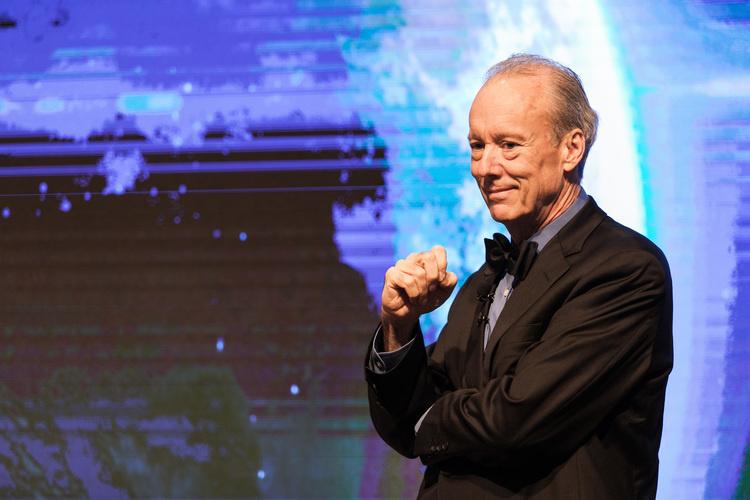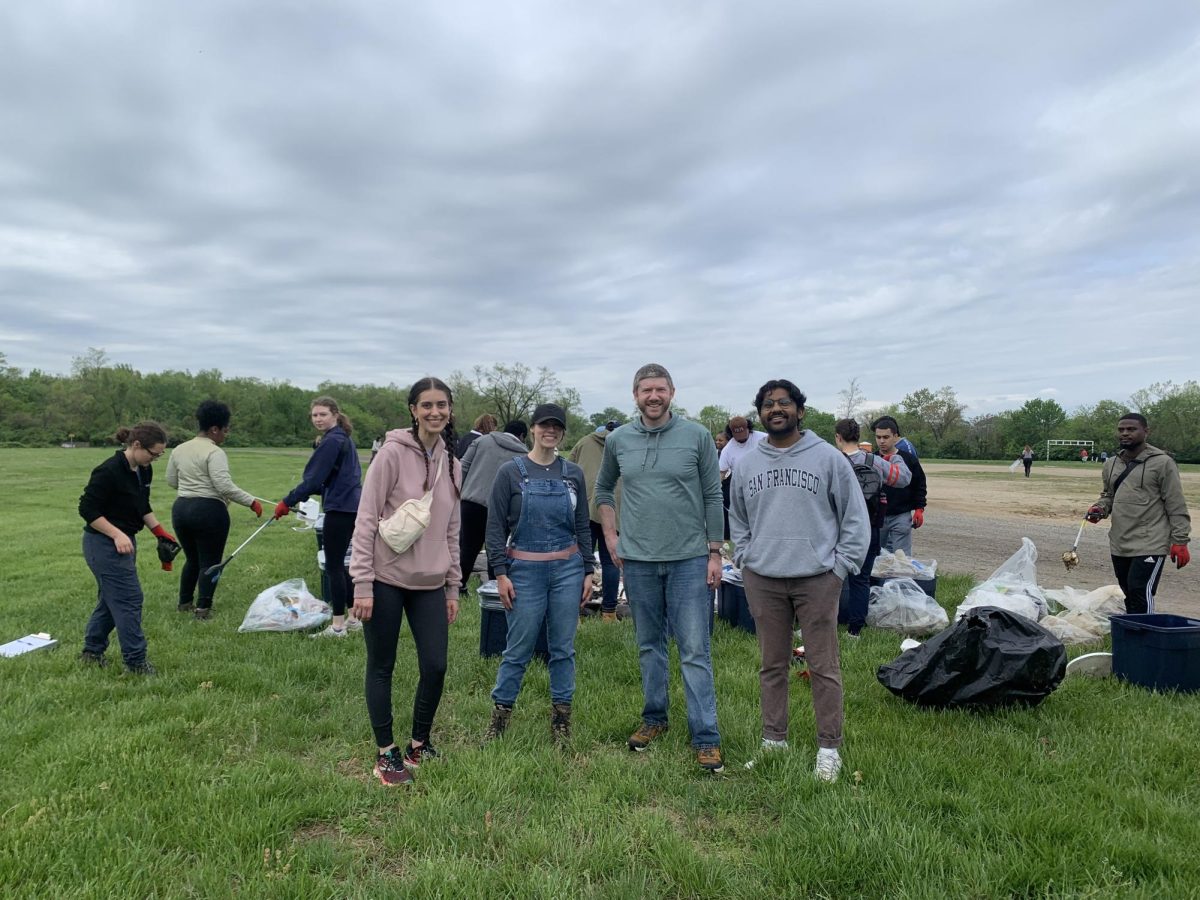
The survival of the global economy and the future health of the environment depend on manufacturing multi-use goods that produce less waste, argued architect and sustainable development leader Bill McDonough in an event Wednesday.
The event, entitled “Rethinking Plastic: Answering a Global Call to Action,” was cosponsored by Georgetown University’s Office of Sustainability, the Urban and Regional Planning Program, the Global Cities Initiative, the Mid-Atlantic Center for Children’s Health and the Environment, and the Georgetown Environment Initiative and took place in Copley Formal Lounge on Wednesday afternoon.
McDonough works as an architect, but is renowned for his leadership in the global sustainability movement, according to Georgetown University President John J. DeGioia. He founded Cradle to Cradle Products Innovation Institute, which strives to initiate “a new industrial revolution” with a sustainable focus.
McDonough received a Presidential Award for Sustainable Development in 1996 and Time Magazine named him “Hero for the Planet” in 1999. In 2014, he was appointed as the Inaugural Chair of the World Economic Forum’s Meta-Council on the Circular Economy.
DeGioia introduced McDonough for his keynote, after which McDonough discussed the impact of sustainability efforts at Georgetown with Carrie Bonfield (COL ’19), the president of Georgetown’s chapter of the Sustainable Ocean Alliance, a national student organization that promotes the health of the world’s oceans. Also involved in the discussion was Dr. Timothy Warren, the chair of the Chemistry Department and co-chair of Georgetown’s Environment Initiative, an organization dedicated to the study of the environment in relation to society, scientific understanding and policy.
McDonough’s work focuses on fighting what he calls “throwaway” culture, the idea that products are good for one-time use and should then be discarded.
“Throwaway culture assumes there’s an ‘away,’” McDonough said.
McDonough proposed a new way to create susainable goods by designing reusable products.
“If I design for end of use, I can design for next use,” he said. “Essentially, we want to go from a linear economy of taking and making waste, to a circular economy of retake, remake and regenerate.”
McDonough said that manufacturers must focus on the future environmental impact of their products beyond initial use in order to cultivate a more sustainable economy.
“Would you actually go out and design a system that puts 18 billion pounds of plastic in the oceans every year?” McDonough said. “Nature doesn’t have a design problem. Humans do.”
Because the issue of environmental health is visible in the form of litter and pollution, it will resonate with the public and encourage them to support and engage with sustainability efforts, McDonough said.
Warren echoed McDonough’s call to action and encouraged Georgetown students and faculty to incorporate sustainability into their individual research.
“In all the intellectual curiosity that we have, there are ways that we can look at a problem that we’ve been working on, as students for weeks or as faculty for years or decades, and try to see what connection that has to the environment, what connection that has to sustainability,” Warren said.
Bonfield offered examples of how to build a sustainable lifestyle at Georgetown, describing how she carries reusable cutlery and a travel mug with her to reduce her carbon footprint, and encouraged other Georgetown students to do the same.
“Think about your actions and how they impact the rest of the environment around you and try to be a champion for the environment and set a culture of eco-living wherever you go,” she said.
McDonough emphasized the magnitude of the problems facing our environment and the need for long-term commitment to solve them.
“It will take us all, it will take forever, but that’s the point,” McDonough said.




















